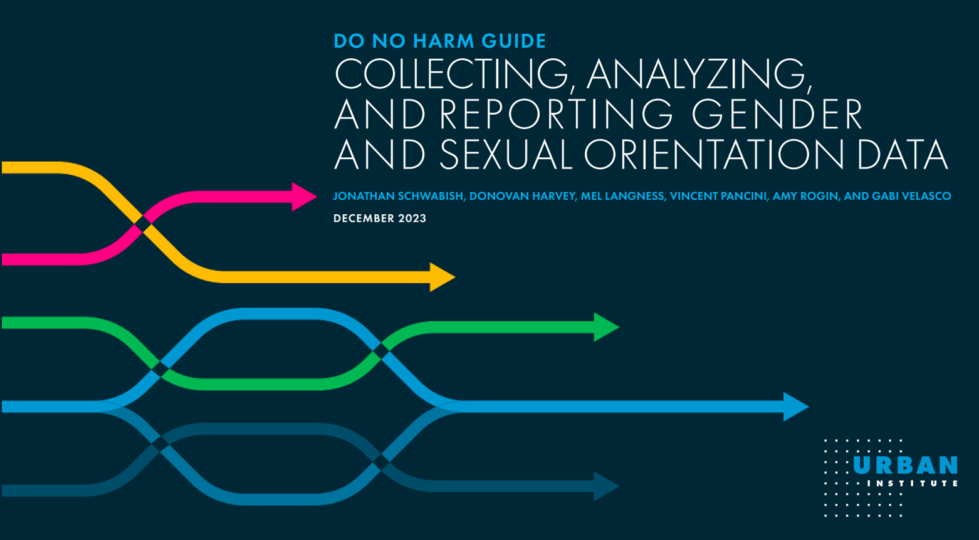Gayta Science’s own Kelsey Campbell was recently on the Advisory Board for Urban Institute’s fifth installment of the Do No Harm Project, exploring the current state of data around sexual orientation and gender identity (SOGI). It was such a treat to work with a team approaching this incredibly important topic with care and consideration. Gayta Science often receives questions about how to collect inclusive SOGI data. On the surface it seems like a simple question, but the answer is extremely complex and contextual! The best we could usually offer was a list of resources and some high-level things to consider, UNTIL NOW! It is beyond exciting to be able to point people to Urban’s impressively comprehensive guide on collecting, analyzing, and reporting SOGI data!
The guide has so many important and actionable considerations and recommendations for researchers and data practitioners. The following are five key points to keep in mind when working with SOGI data:
- Researchers must tell people why their data are being collected. Making clear why a person’s data will help answer important research and policy questions is fundamental for building trust, which will ultimately result in better-quality data.
- Doing SOGI research is just like doing any good research. No matter the type of research, researchers should be clear about the questions they are asking, what data they need to answer those questions, and why.
- There is no one way to collect SOGI data. Some experts argue that asking questions about a person’s transgender status should be accomplished by asking two separate, consecutive questions, whereas others say a single question with a list of options or even an open-ended (i.e., write-in) option is a better approach.
- Language-to-language translation can be complicated. Making surveys and data collection efforts as well as final dissemination of products available to people who do not speak English can pose additional concern.
- Privacy and safety are real and serious concerns. Any organization collecting, storing, and analyzing SOGI data needs to take data privacy concerns seriously.
Kelsey was most involved in the section focusing on asking questions around gender in surveys - an area where there is much room for improvement. The section discusses how a 2-step survey approach, where a respondent is first asked about their sex assigned at birth (typically binary) and then later asked their current gender, has become a common standard. When a gender measure inclusive of non-binary people is used, this approach can be an efficient way to capture transgender status and gender identity! However, many large scale survey efforts in the U.S. that currently use this 2-step approach are in desperate need of a language update. The guide discusses many examples of this, and explains why gender measures providing options like “Male”, “Female”, and “Transgender” are inappropriate.
The guide also discusses the importance of only collecting the data necessary for research goals, protecting sensitive data, and using data appropriately. Kelsey was quoted commenting about the tension in the LGBTQ+ community between representation and safety.
Data is extremely powerful and can benefit the LGBTQ+ community, but much care needs to be taken in regard to safety, security, and use to truly realize the potential.
While the space is constantly evolving, this Do No Harm guide is a great place to start if you are collecting, using, or consuming SOGI data! Exciting to FINALLY have something so actionable to point people to, and have no doubt it is going to be incredibly useful as we continue working towards better data practices for the LGBTQ+ community!
Images and key points provided by Urban Institute.



